
10 Best AI Research Paper Writing Tools for 2024 and 2025
As we look ahead to end of 2024 and forward to 2025, AI tools are set to revolutionize research paper writing by offering powerful features to enhance structure, clarity, and originality. This article explores the top 10 AI writing assistants designed to simplify the research paper writing process for students and academics:
Quick Comparison
| Tool | Literature Review | Citation Management | Data Analysis | Plagiarism Check | AI Writing Assistant | |
|---|---|---|---|---|---|---|
| Yomu AI | ✓ | ✓ | ✓ | ✓ | ✓ | |
| Scite.ai | ✓ | ✓ | ||||
| Sourcely | ✓ | ✓ | ||||
| Research Rabbit | ✓ | ✓ | ||||
| Writefull | ✓ | ✓ | ✓ | |||
| Iris.ai | ✓ | ✓ | ✓ | |||
| Semantic Scholar | ✓ | ✓ | ||||
| Trinka AI | ✓ | ✓ | ✓ | |||
| PaperPal | ✓ | ✓ | ✓ | |||
| Grammarly | ✓ | ✓ | ✓ |
These AI tools offer a range of features to enhance research paper writing, including literature review assistance, citation management, data analysis, plagiarism checking, and AI-powered writing assistance. By leveraging the power of AI, students and researchers can improve the quality and efficiency of their research paper writing process.
1. Yomu AI
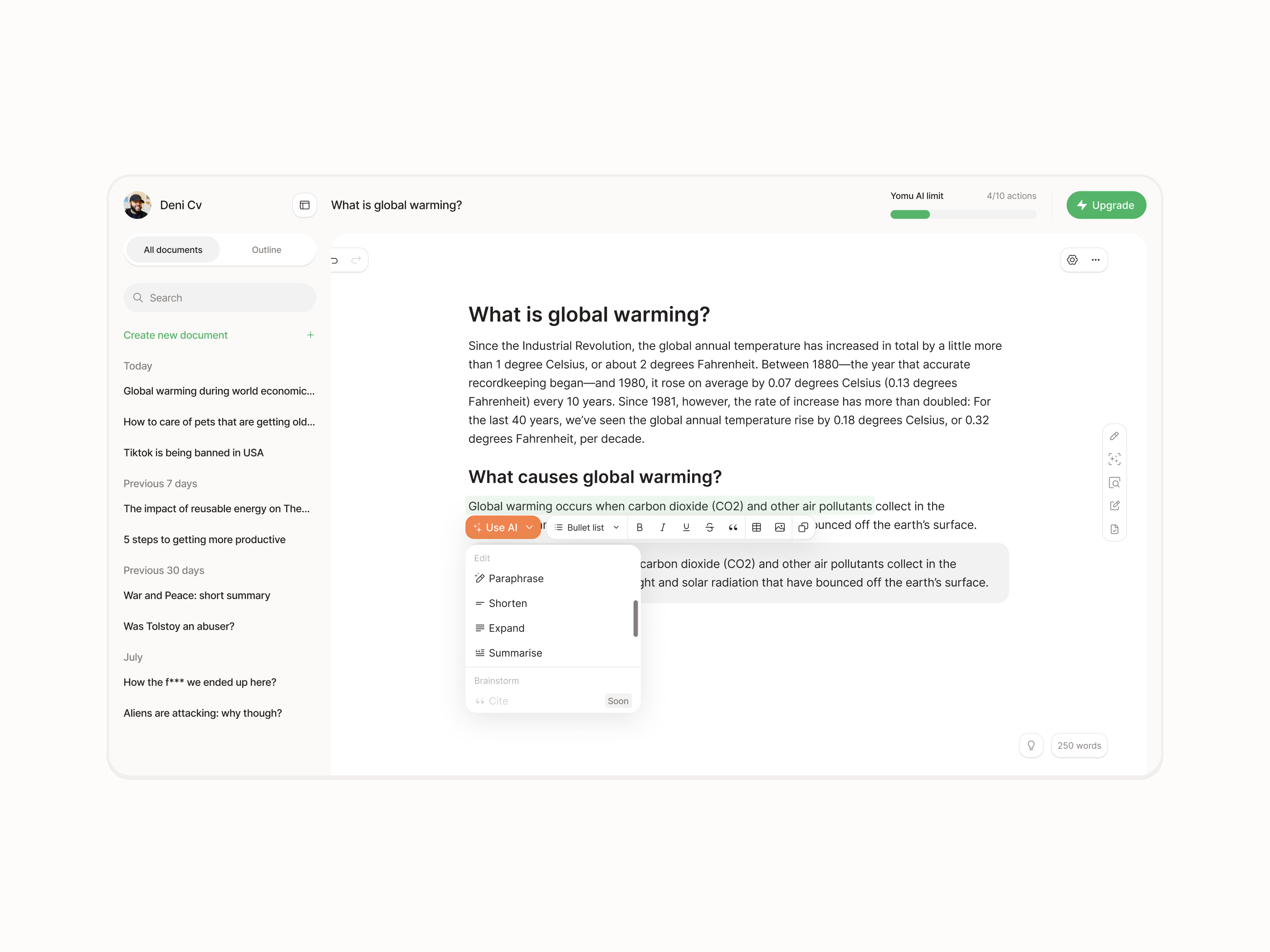 Yomu AI is a comprehensive AI-powered research paper writing assistant designed to streamline the entire process from ideation to final draft
Yomu AI is a comprehensive AI-powered research paper writing assistant designed to streamline the entire process from ideation to final draft
Key Features
-
Literature Review Assistance: Yomu AI helps researchers find relevant papers and summarize key findings, saving time in the initial research phase.
-
Citation Management: The tool automatically generates citations in various formats, ensuring accuracy and consistency throughout the paper.
-
AI Writing Assistant: Yomu AI can help generate paragraphs, suggest improvements, and even assist in structuring the paper according to academic standards.
-
Plagiarism Check: An integrated plagiarism checker ensures the originality of the work.
-
Data Analysis Support: While not a full-fledged data analysis tool, Yomu AI can assist in interpreting results and suggesting appropriate statistical methods.
Benefits
Yomu AI significantly reduces the time spent on research paper writing while improving the overall quality of the work. Its user-friendly interface and comprehensive feature set make it an excellent choice for both novice and experienced researchers.
2. Scite.ai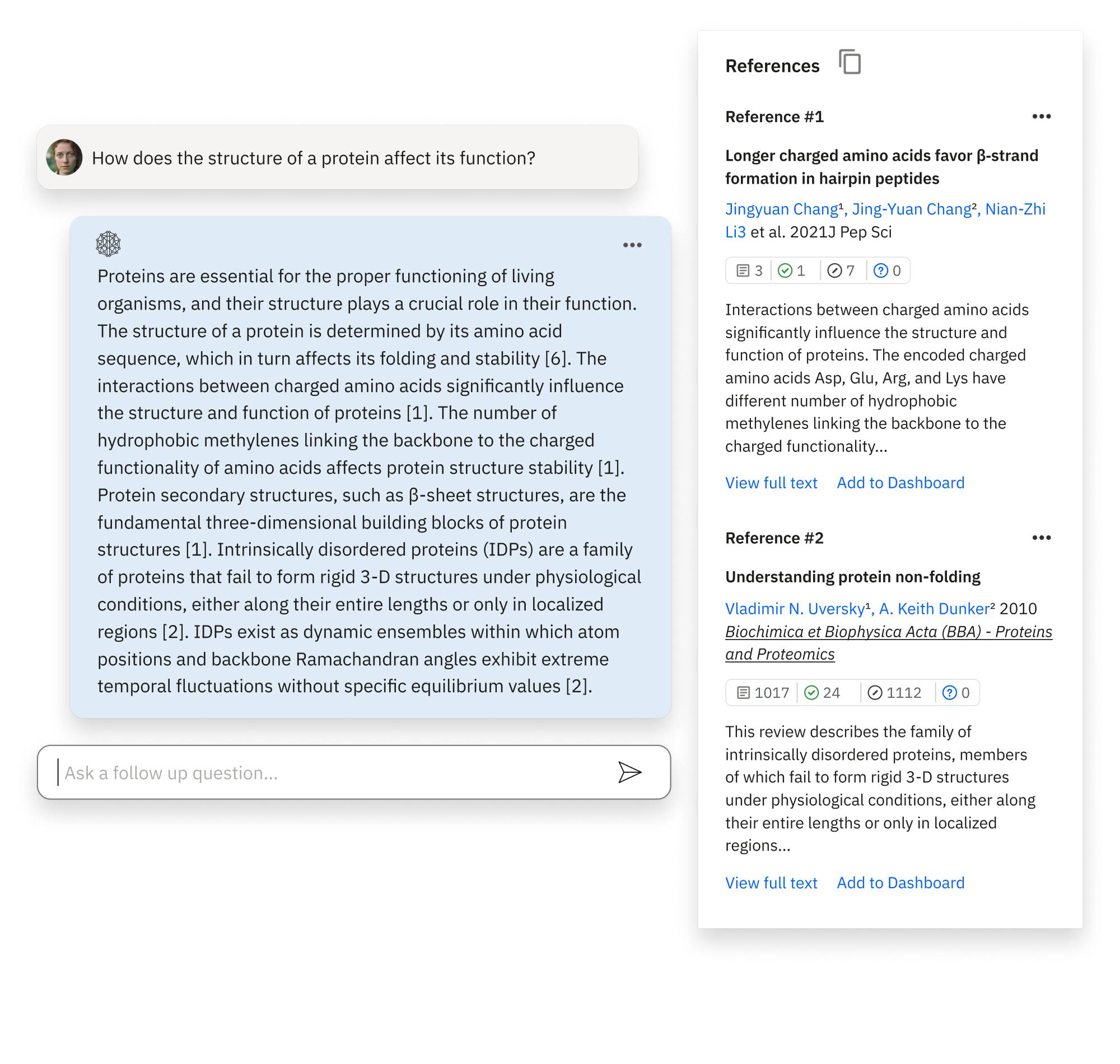
Scite.ai is an AI-powered platform that revolutionizes the way researchers interact with scientific literature.
Key Features
-
Smart Citations: Scite.ai provides context for citations, showing how the cited work has been referenced by other papers.
-
Literature Discovery: The tool helps researchers find relevant papers based on their current research interests.
-
Citation Validation: Scite.ai checks if citations actually support the claims made in the paper.
Benefits
Scite.ai enhances the literature review process by providing deeper insights into the relevance and impact of cited works, leading to more robust and well-supported research papers.
3. Sourcely
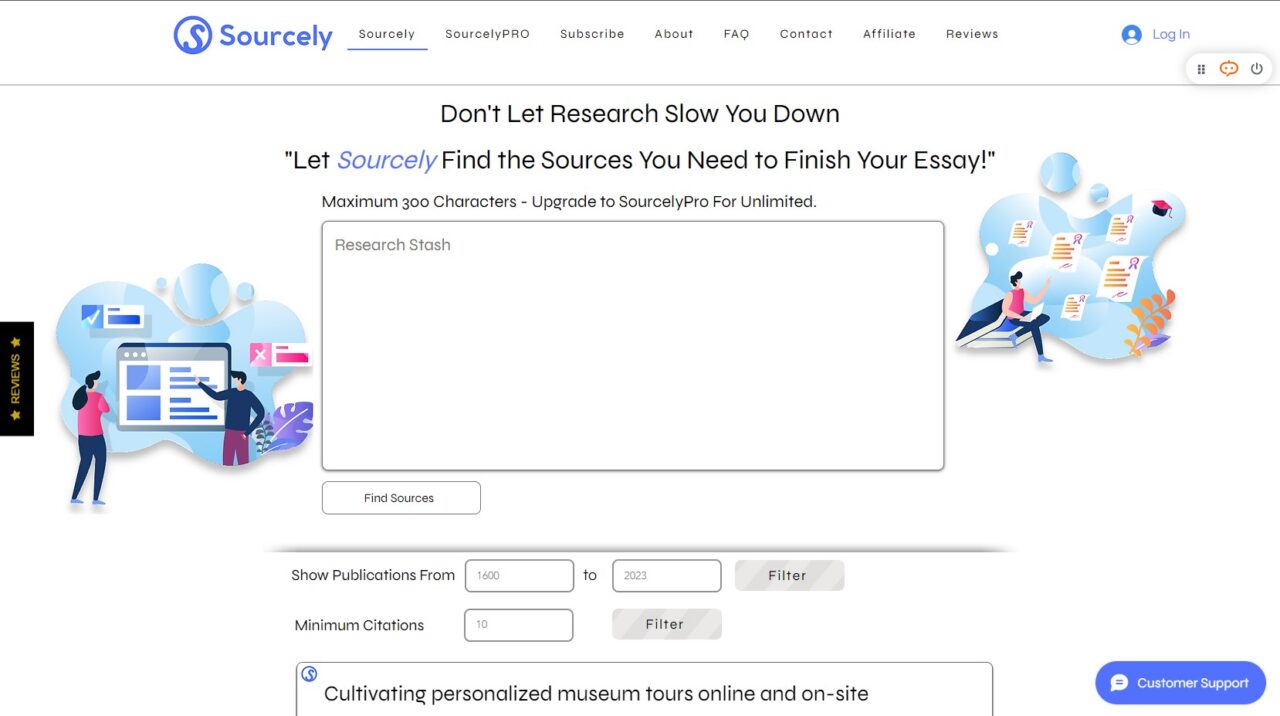
Sourcely.net is an AI-powered research assistant designed to streamline the academic research process and enhance source discovery.
Key Features
-
Access to Vast Database: Sourcely.net provides access to over 200 million research papers, ensuring comprehensive coverage of various academic fields
.
-
Precise Search Filters: Users can refine their search results using advanced filters, including minimum citations, keywords, and article type
.
-
PDF Downloads: Sourcely.net allows users to easily download PDFs of research papers, facilitating offline reading and annotation
.
-
AI-Powered Recommendations: The platform uses artificial intelligence to understand research needs and deliver personalized source recommendations
.
-
Integration with Yomu AI: Sourcely.net seamlessly integrates with Yomu AI for real-time feedback and efficient writing tools.
Benefits
Sourcely.net significantly enhances the research process by providing a user-friendly interface for discovering relevant sources, saving time, and improving the overall quality of academic work. Its AI-powered features and vast database make it an invaluable tool for students, researchers, and academics alike.
4. Research Rabbit
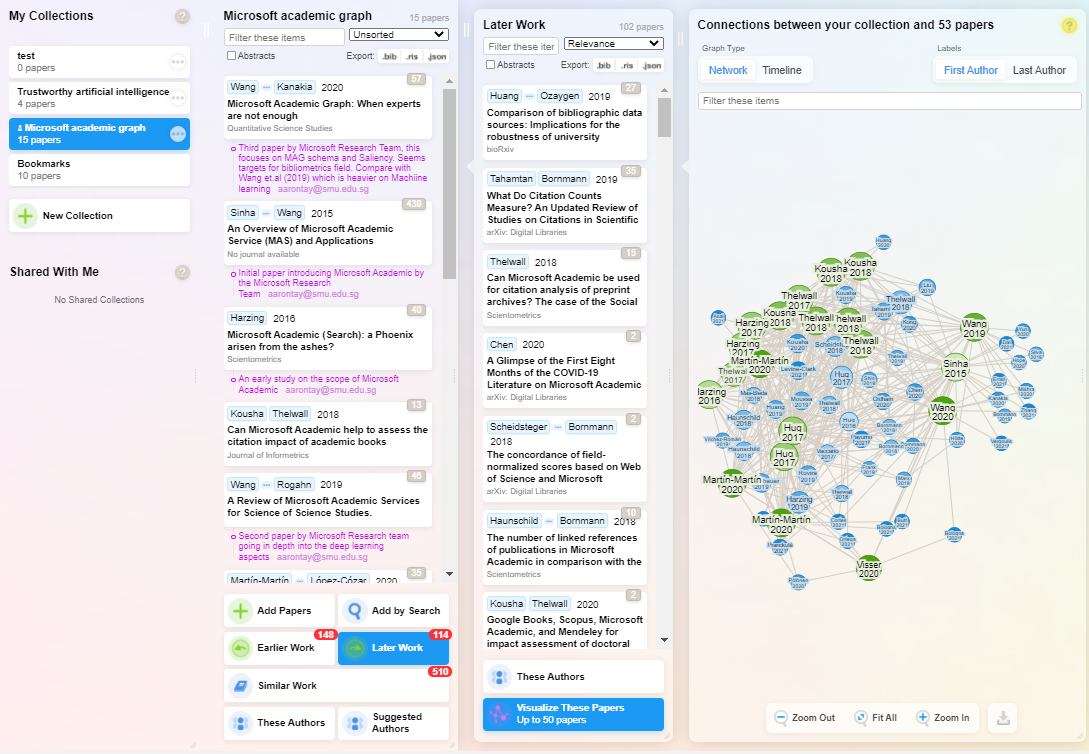
ResearchRabbit is an AI-powered literature mapping tool that helps researchers discover relevant papers and visualize connections between studies.
Key Features
-
Literature Mapping: The tool creates visual maps of research papers, showing connections and relationships between studies.
-
Personalized Recommendations: ResearchRabbit suggests relevant papers based on the user's research interests.
-
Collaboration Features: Researchers can share collections and collaborate on literature reviews.
Benefits
ResearchRabbit enhances the literature review process by providing a visual and intuitive way to explore research fields, leading to more comprehensive and well-connected research papers.
5. Writefull
Writefull is an AI-powered writing assistant specifically designed for academic and scientific writing.
Key Features
-
Language Enhancement: Writefull provides suggestions to improve academic language usage and style.
-
Title and Abstract Generator: The tool can help generate compelling titles and abstracts for research papers.
-
Figure and Table Caption Suggestions: Writefull assists in creating clear and informative captions for figures and tables.
Benefits
Writefull helps researchers improve the clarity and professionalism of their writing, ensuring that research papers meet high academic standards.
6. Iris AI
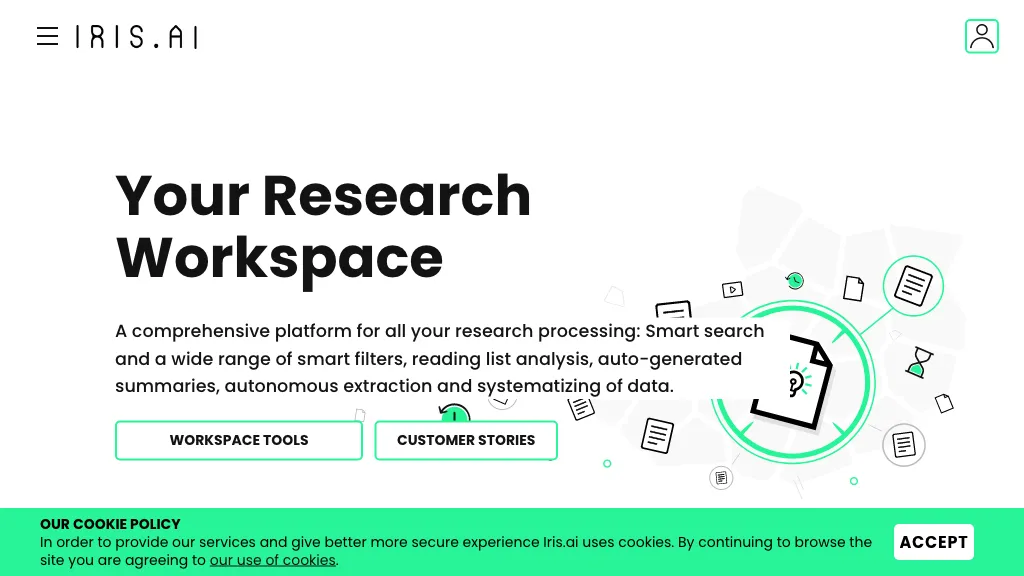
Iris.ai is an AI-powered research assistant that helps researchers navigate vast amounts of scientific literature.
Key Features
-
Automated Literature Review: Iris.ai can analyze a research paper or project description and suggest relevant literature.
-
Concept Extraction: The tool identifies key concepts in scientific texts, aiding in understanding and summarization.
-
Research Map Generation: Iris.ai creates visual maps of research fields, helping researchers identify gaps and opportunities.
Benefits
Iris.ai significantly speeds up the literature review process and helps researchers gain a broader understanding of their field, leading to more comprehensive and innovative research papers.
User Feedback and Academic Focus
Jenni AI is designed for students, researchers, and academics, with a user-friendly interface and academic focus. The tool offers flexible accessibility and pricing, making it an ideal solution for those seeking to elevate their writing skills and produce high-quality academic content.
Jenni AI's features and capabilities make it an excellent choice for those looking to improve their writing efficiency and quality. With its AI-powered language enhancement features and proofreading capabilities, Jenni AI is a valuable tool for academic writing.
7. Semantic Scholar
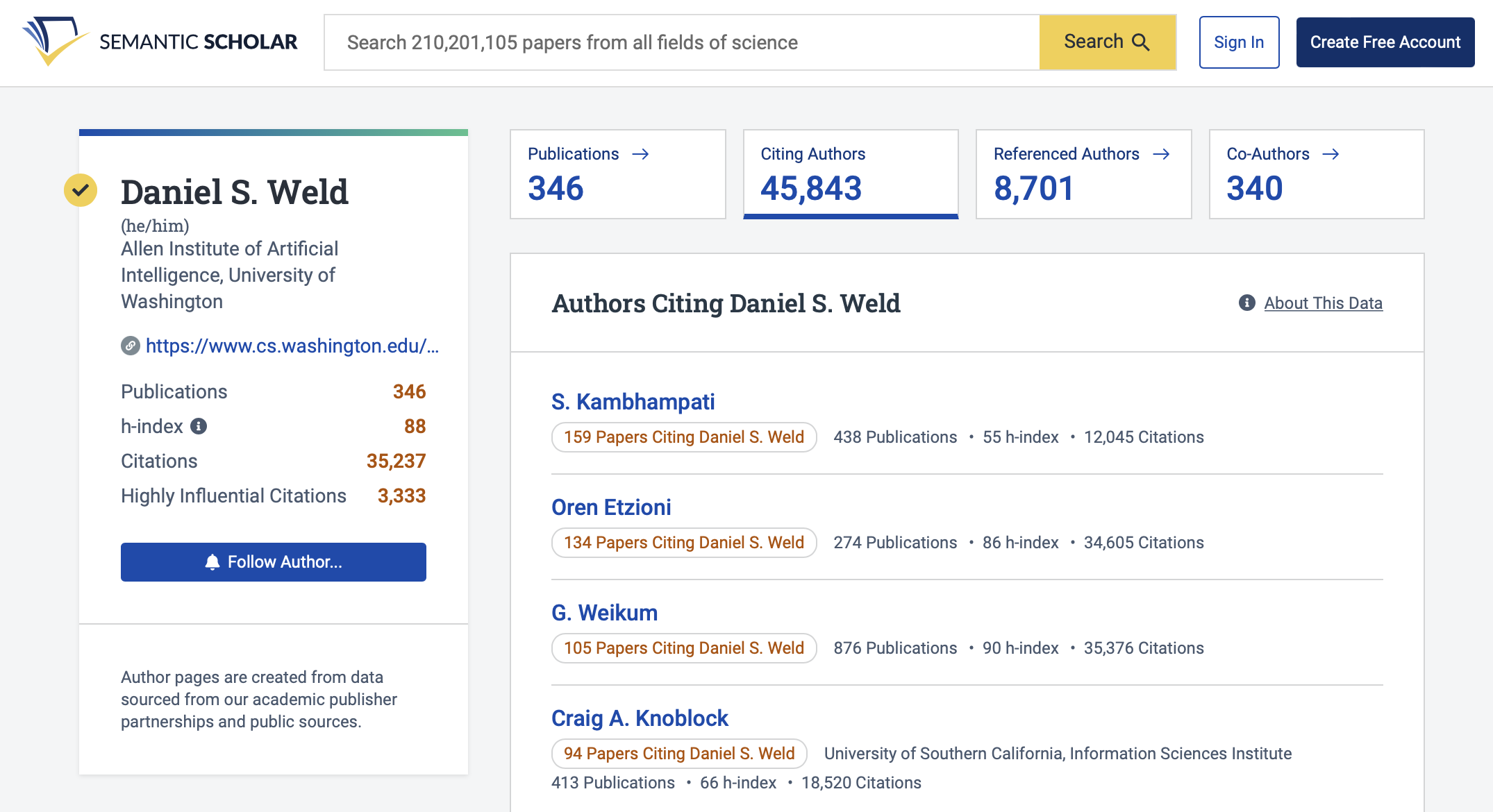
Semantic Scholar is an AI-powered research tool that helps researchers discover and understand scientific literature.
Key Features
-
Intelligent Search: The tool uses AI to understand the meaning behind search queries, providing more relevant results.
-
Paper Summaries: Semantic Scholar generates concise summaries of research papers, highlighting key findings.
-
Citation Analysis: The tool provides insights into the impact and influence of papers based on citation data.
Benefits
Semantic Scholar enhances the literature review process by providing more relevant search results and deeper insights into the impact of research papers.
sbb-itb-1831901
8. Trinka AI
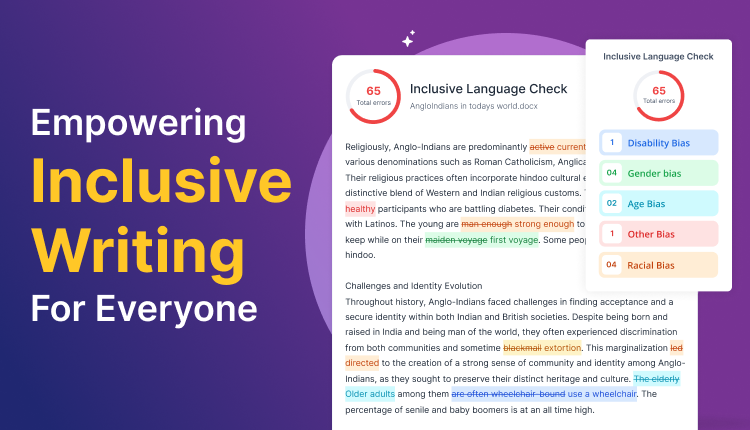
Trinka AI is an AI-powered writing assistant specifically designed for academic and technical writing.
Key Features
-
Grammar and Style Checking: Trinka AI provides suggestions to improve grammar, punctuation, and academic writing style.
-
Discipline-Specific Suggestions: The tool offers writing suggestions tailored to specific academic disciplines.
-
Consistency Checker: Trinka AI ensures consistency in terminology and formatting throughout the paper.
Benefits
Trinka AI helps researchers improve the clarity and professionalism of their writing, ensuring that research papers meet the specific requirements of their academic discipline.
9. PaperPal
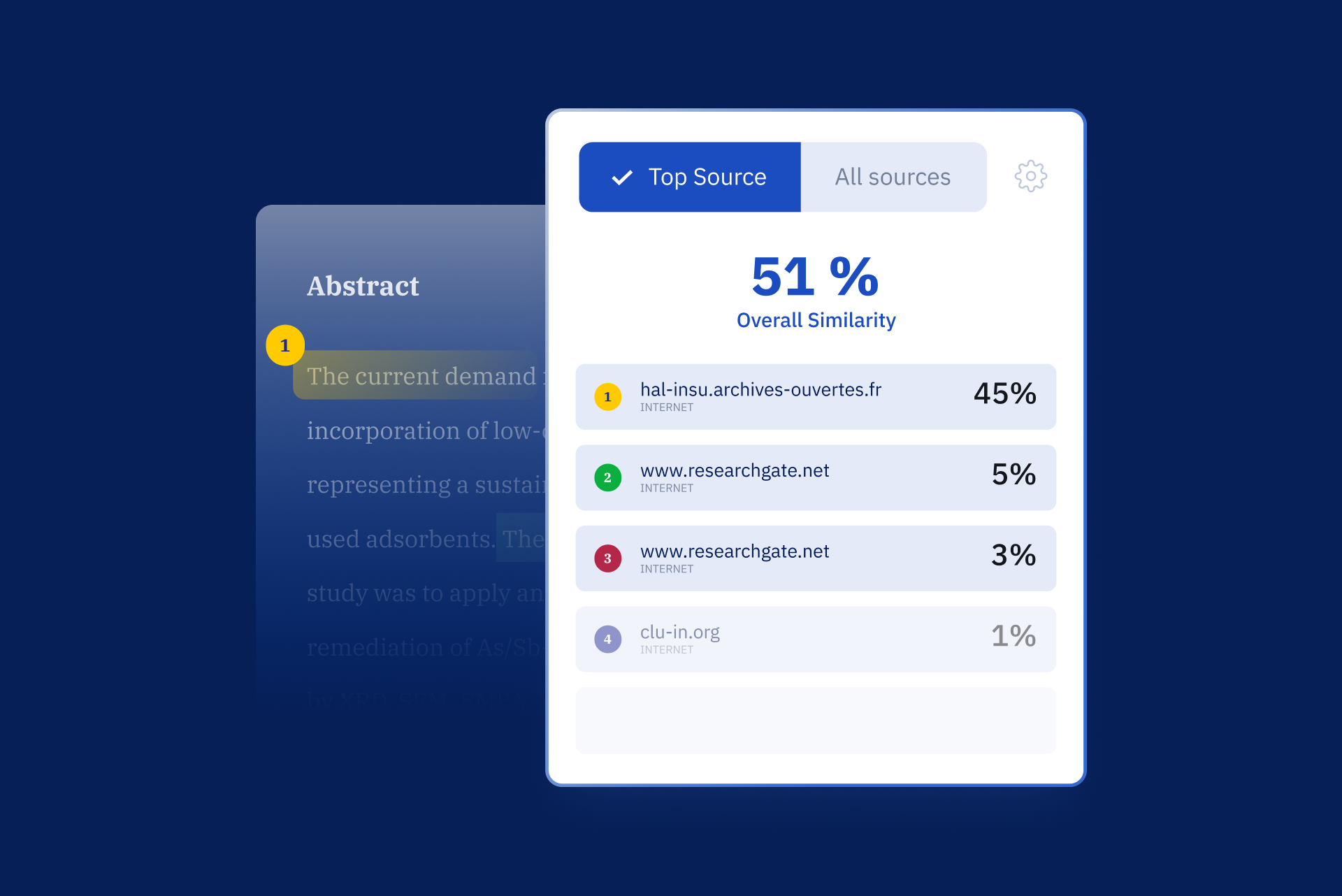
Paperpal is an AI-powered writing assistant designed to help researchers improve the quality of their manuscripts.
Key Features
-
Language Polishing: Paperpal provides suggestions to enhance the clarity and fluency of academic writing.
-
Journal-Specific Formatting: The tool can format papers according to the requirements of specific journals.
-
Reference Checker: Paperpal ensures that all citations in the text have corresponding entries in the reference list.
Benefits
Paperpal helps researchers prepare publication-ready manuscripts, increasing the chances of acceptance in academic journals.
10. Grammarly
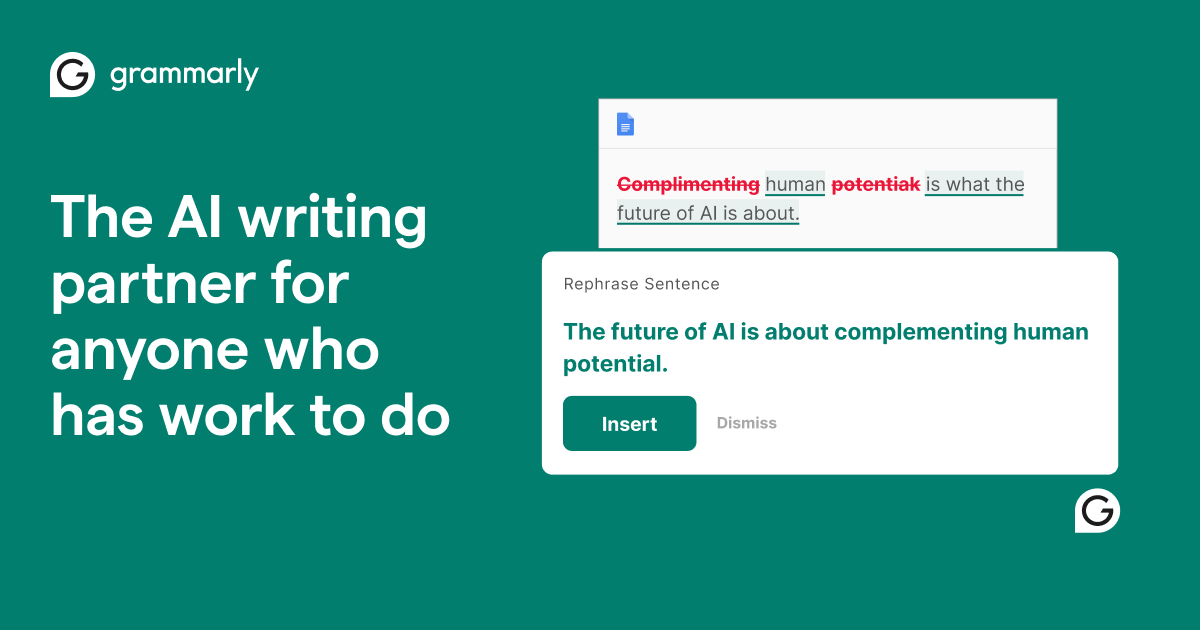
While not specifically designed for academic writing, Grammarly's AI-powered writing assistant can be a valuable tool for research paper writing.
Key Features
-
Advanced Grammar Checking: Grammarly provides comprehensive grammar, spelling, and punctuation checks.
-
Style Suggestions: The tool offers suggestions to improve clarity and engagement in writing.
-
Plagiarism Checker: Grammarly includes a plagiarism checker to ensure the originality of the work.
Benefits
Grammarly helps researchers improve the overall quality of their writing, ensuring that research papers are clear, engaging, and free of grammatical errors.
Conclusion
In conclusion, these AI-powered tools are set to transform the research paper writing process in 2024 and 2025. By leveraging these technologies, researchers can significantly improve the efficiency and quality of their work, leading to more impactful and successful research papers.

